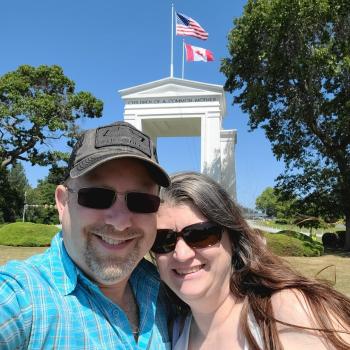Getting Harry Reid and John Boehner to agree on anything takes an extraordinary state of affairs. But they both agree that in the name of safety and security, the federal government should be free to conduct wide-reaching surveillance that potentially invades the privacy of average American citizens.
Civil libertarians have protested and they have offered cogent reasons based upon the Constitution and the Bill of Rights for their objections to the practice. But there is a deeper, more foundational spiritual issue at stake as well: a surrender to fear.
Over the years a number of novels and movies explored the possibility that we might violate our deepest principles as a nation in the name of safe guarding ourselves against tragedy—selling freedom for security. That is certainly a serious consideration. But what I don't recall anyone ever discussing is the fundamentally spiritual peril inherent in a choice of that kind.
Life is circumscribed by mortality. Lives begin and end. Absolute safety cannot be guaranteed. From a spiritual point of view, we can only exercise true freedom and give ourselves fully to cultivating virtue in trusting abandonment to the grace and goodness of God. That entails adhering to what we know to be our deepest and best principles, whatever the consequences.
The moment that we allow our fears to subvert our commitment to virtue, we run the risk of squandering the only thing we really have: the opportunity to live with faith and courage. To be sure, we can sell our freedom in the name of protecting ourselves against malevolent forces, but death will come for us anyway; and in the meantime we will have lived in fear. And fear is what is driving us to allow our government unfettered access to our lives, without warrant and narrowly defined purpose.
Security bought at the price of freedom is not strength and it is not prowess. It is the squandering of virtue that can only be had in the sharply circumscribed space we call "life" that is finite in character. "Death comes for us all, even kings," notes Robert Bolt's Sir Thomas More in his play, A Man for All Seasons. It comes for nations as well.
Let us live in rich and reckless conformity, then, to the principles we argue gave birth to this country, rather than court the spiritual peril of living in fear of something that cannot be avoided.
6/16/2013 4:00:00 AM





